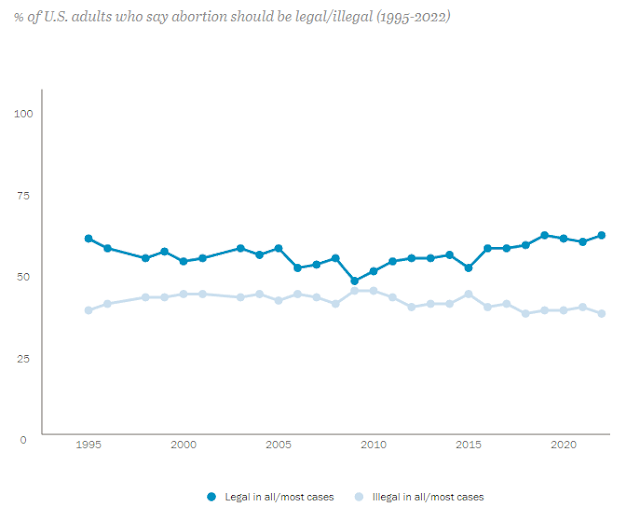For some time now, I have known I only need the answer to one question in order to decide if I will support a political candidate or not: Where do you stand on choice? The more pro-choice a candidate is, the more support they get from me. In the unlikely scenario of two viable candidates asserting exactly the same support for choice, I would be able ask more questions (see next paragraph), but that never happens.
Mind you, I care a lot about several other issues. Here are the big ones, not listed in an particular order:
- Equality
- The Environment
- Workers' Rights
There are a few more, but by the time I know where candidates stand on the big ones, the rest won't make any difference to my voting decisions. Which is why I only need one answer in the first place: if you are pro-choice, you are almost certainly on my side of the other issues that matter to me. That's just how it goes, so I don't need to waste your time (or mine) asking a lot of questions I already know the answer to. And, to be clear, if you are anti-choice, I pretty much know where you're going to fall on the other issues too.
So you know where I stand on choice: I'm for it. But I'm one of the few pro-choice lawyers I know who also thinks there just isn't a clear expression of a right to abortion in the constitution. This fact tends to infuriate my pro-choice friends, but most of them would claim they could find a clear expression of a right to abortion in a candy wrapper if, somehow, the text of the constitution were replaced with a copy of a candy wrapper. I respect their zeal, but that kind of conclusions-first-reasons-later approach makes for good advocacy, not good law. Bad law is how we got to the place we're at today. For 50 years, pro-choicers have relied on the combination of a weak pro-choice decision by the Supreme Court and a resolute pro-choice majority on the Supreme Court to keep choice safe. Well, that majority is gone and, unsurprisingly, so is that decision. Pro-choice elected officials have had half a century to write choice into the statutes of the land, but chose not to. Something about "upsetting conservatives," I think. Well, time for that to change too. The pro-choice vote in Kentucky should make that clear. But, if that's not enough, try this:
Over 60% of Americans think abortion should be legal in all or most cases. That number is only going up. The time has come to recognize that upsetting conservatives is no reason to back away from being pro-choice. If you like a little schadenfreude with your politics, feel free to see that upsetting conservatives ought to be just an extra reason to embrace being pro-choice.
This has become a winning issue for us at last. And it can save everyone a lot of time. Just ask the next candidate who wants your vote, where do they stand on choice? It's the only answer you will need.

No comments:
Post a Comment
You must have a Google account to comment. See my terms of use before commenting.